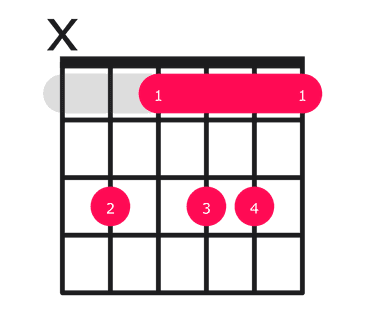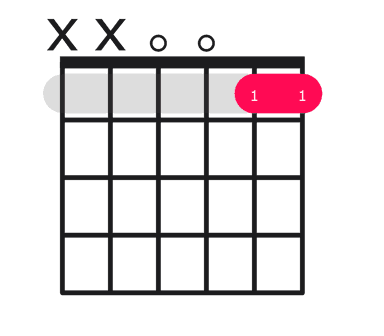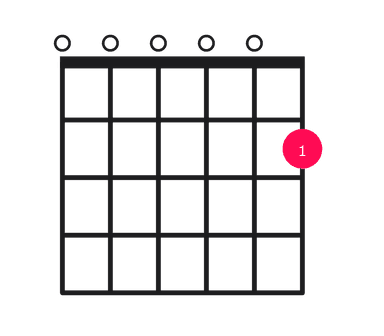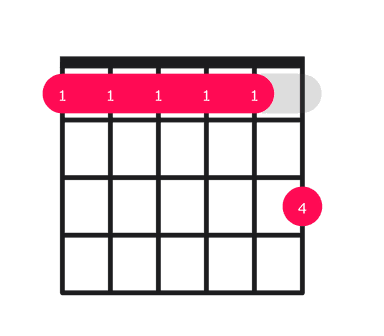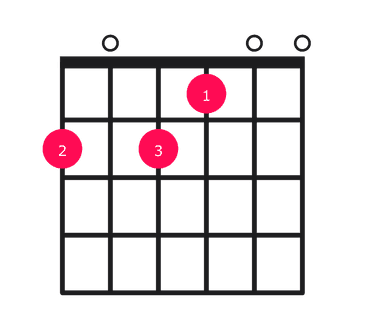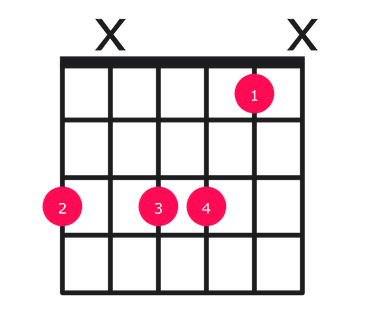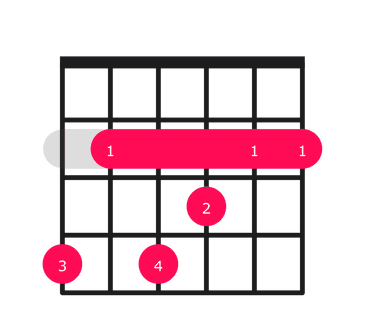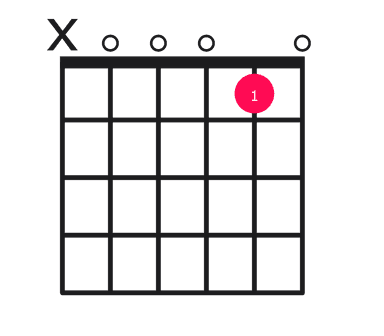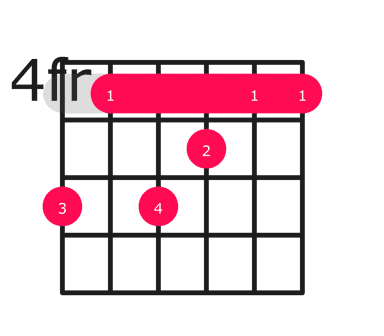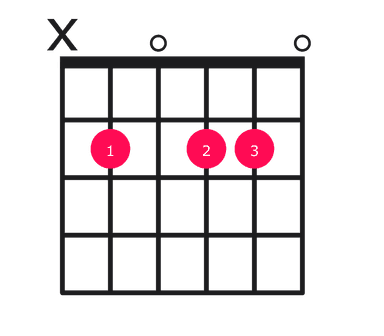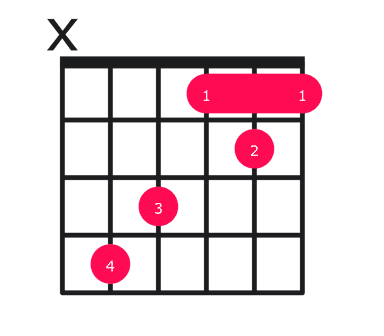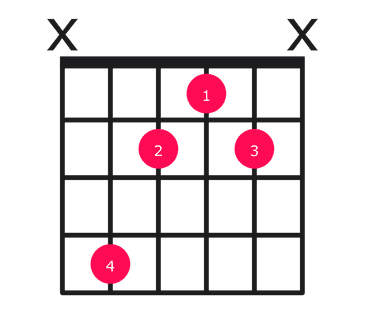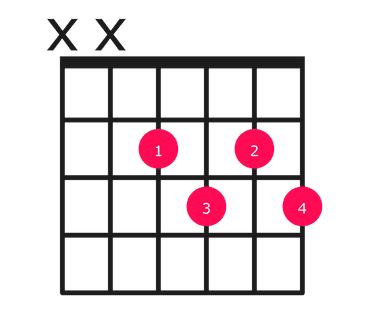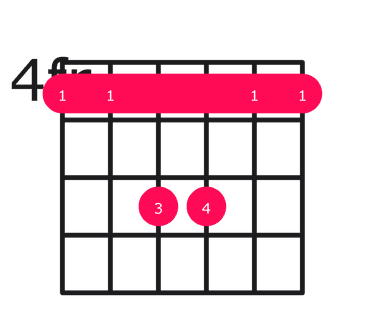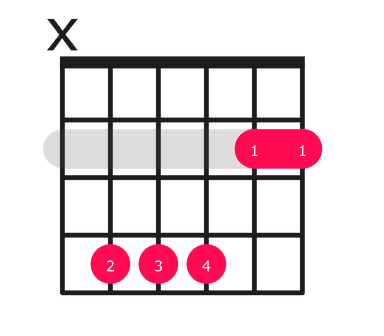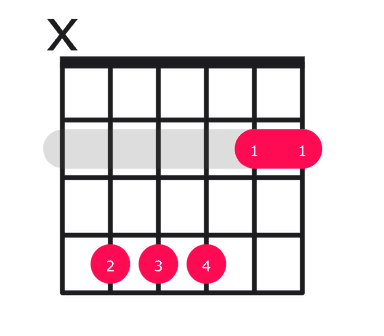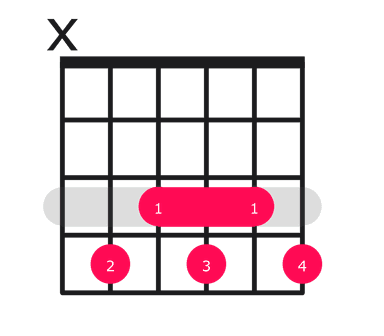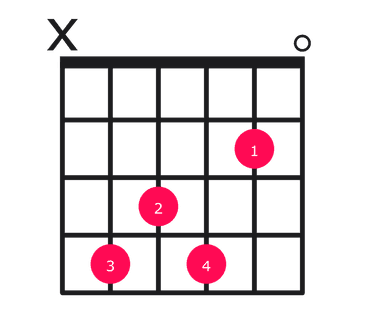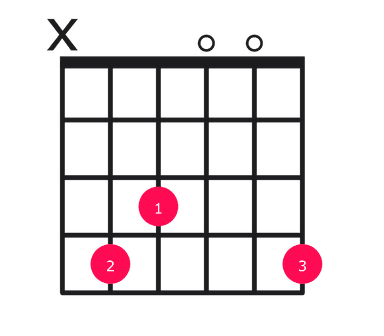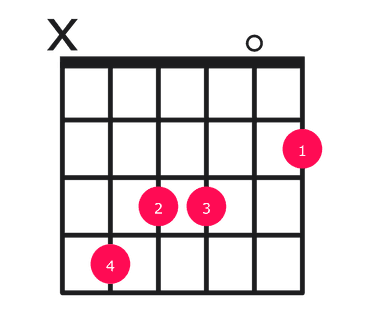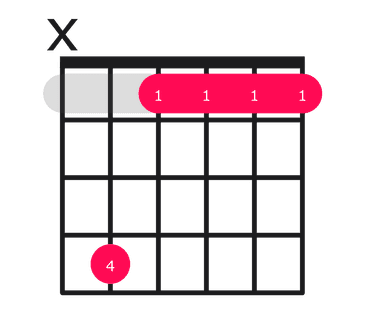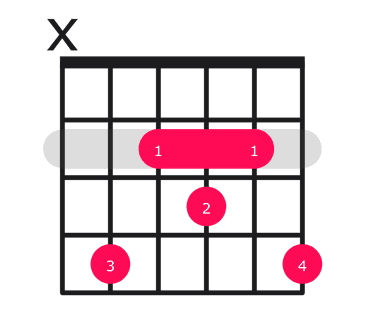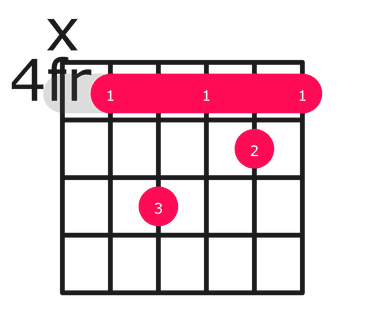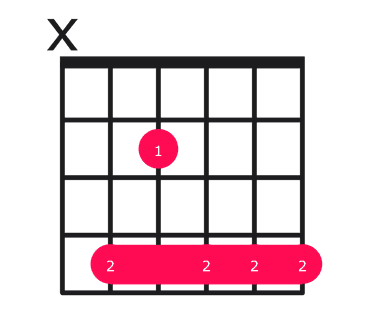How to play the C#m11 chord on guitar
Unleash the haunting sound of Pink Floyd's "Breathe" with this advanced chord.
The C#m11 chord
The C#m11 chord, pronounced "C sharp minor eleventh," is a rich and complex guitar chord that adds depth and intrigue to any composition. Notable for its haunting and jazzy sound, the C#m11 is often used in genres like neo-soul, R&B, and indie rock. While not as common as simpler chords, the C#m11 can be found in songs by artists like Tom Misch and Lianne La Havas.
There are many ways to play a chord. Here's a diagram for the most common C#m11 chord. We've also included other versions below.

Unlock your playing potential in online guitar lessons with experts on Til. Start today and achieve your guitar goals quickly. Find a top-rated teacher.
Finger placement for C#m11 chord
The most common way to play the C#m11 chord on guitar is as a barre chord on the 4th fret.
Follow these finger positions to play a C#m11 chord on your guitar:
- Barre your index finger across all six strings on the 4th fret.
- Place your middle finger on the 5th fret of the 3rd (G) string.
- Place your ring finger on the 6th fret of the 4th (D) string.
- Place your pinky finger on the 6th fret of the 2nd (B) string.
To strum this chord, play all six strings together in a downward motion, starting from the 6th (low E) string and moving towards the 1st (high E) string.
How to play an easy C#m11 chord on guitar
If you're a beginner looking to play a simpler version of the C#m11 chord, try this:
- Place your index finger on the 4th fret of the 5th (A) string.
- Place your middle finger on the 5th fret of the 3rd (G) string.
- Strum only these two strings together.
This two-note version still captures the essential sound of the C#m11 chord.
How to play a C#m11 bar chord
Sometimes you may want to play a C#m11 chord in a barre shape to make transitioning to and from other barre chords easier, or to get a fuller sound.
Here's how to play a C#m11 barre chord:
- Barre your index finger across all six strings at the 4th fret.
- Place your middle finger on the 5th fret of the 3rd (G) string.
- Place your ring finger on the 6th fret of the 5th (A) string.
- Place your pinky finger on the 6th fret of the 4th (D) string.
- Strum from the 6th (low E) string down.
Common C#m11 chord progressions
The C#m11 chord is often used in jazz and neo-soul progressions to add a sophisticated, dreamy, and slightly melancholic flavor. Some common chord progressions featuring C#m11 include:
- i-7 - IV7 - V7 - i-7 (C#m11 - F#7 - G#7 - C#m11)
- i-7 - ii7 - V7 - i-7 (C#m11 - D#m7 - G#7 - C#m11)
- i-7 - VI7 - ii7 - V7 (C#m11 - A#7 - D#m7 - G#7)
- i-7 - bVII7 - bVI7 - V7 (C#m11 - C7 - B7 - G#7)
- i-7 - iv7 - VII7 - III7 (C#m11 - F#m7 - C#7 - E#7)
Drills to master the C#m11 chord
To master the C#m11 chord, try this simple drill: play each note of the chord individually, starting from the lowest and ascending to the highest. Focus on producing a clear, crisp sound for each note. Once you're comfortable, try playing the notes in reverse order, descending from the highest to the lowest.
Another effective drill is to play the chord as an arpeggio, plucking each note one after the other in a steady rhythm. Begin slowly and gradually increase your speed as you become more familiar with the chord shape and transitions.
Unlock your playing potential in online guitar lessons with experts on Til. Start today and achieve your guitar goals quickly. Find a top-rated teacher.
Brian B.
"Molly is absolutely amazing. The way she breaks things down so you can understand how to play is incredible. She encourages questions to help you along in your journey. I would encourage everyone to take her class. You will be better no matter what."
Songs that feature the C#m11 chord
Here are 10 popular songs you can play with the C#m11 chord:
- Slow Dancing in a Burning Room by John Mayer (C#m7, F#m7, A, B)
- Clair de Lune by Claude Debussy
- Angel Eyes by Frank Sinatra
- I Fall in Love Too Easily by Chet Baker (Am, Dm7, G7, C, C#m7, F#m7, B7, E)
- Stardust by Hoagy Carmichael
- My Funny Valentine by Richard Rodgers
- Body and Soul by Edward Heyman, Robert Sour, Frank Eyton, and Johnny Green
- Moonlight in Vermont by John Blackburn and Karl Suessdorf
- All the Things You Are by Jerome Kern
- Polka Dots and Moonbeams by Jimmy Van Heusen
How a guitar teacher can help
If you feel stuck in your playing, it might help to take personalized guitar lessons with an expert guitarist. Taking lessons with a pro gives you access to the skills, feedback, and motivation to reach your goals.
You can find expert guitar teachers to support you in the journey. Thousands of people have turned to online guitar lessons on Til, instead of traditional in-person lessons, because Til gives you access to the best teachers in the world from the comfort of home. And with flexible scheduling, secure payments, lesson recordings, and a private chat with your teacher–there’s never been a better way to learn guitar.
